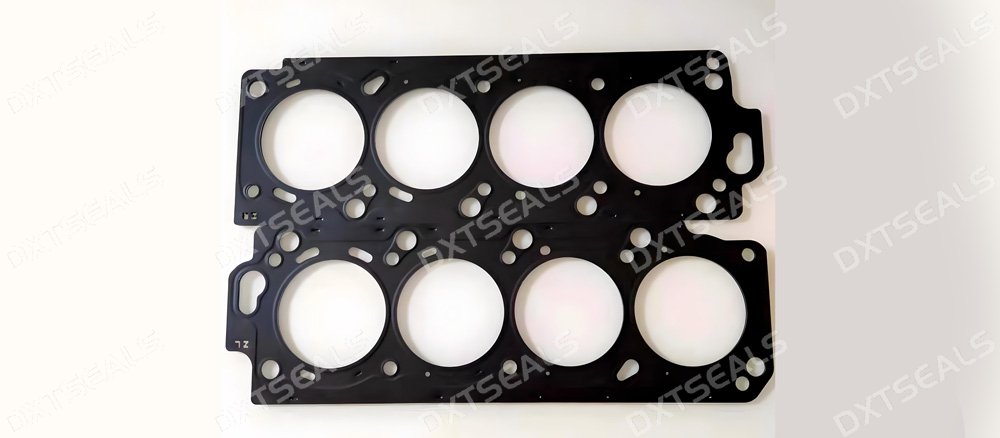
In the automotive industry, rubber seals play a crucial role in ensuring the performance, safety, and longevity of vehicles. These sealing components are used in various applications across the vehicle, from doors and windows to engines and exhaust systems. Rubber seals provide numerous advantages, making them essential in automotive manufacturing and maintenance. In this article, we will explore the key benefits of rubber seals in automotive applications.
What Are Rubber Seals?
Rubber seals are flexible, durable sealing elements made from synthetic or natural rubber materials. They are designed to create tight seals between components, preventing the leakage of fluids, gases, or dust. In automotive applications, rubber seals are commonly used for sealing joints, openings, and assemblies where protection against external elements is required.
Key Benefits of Rubber Seals in Automotive Applications
-
Weather Resistance
One of the primary benefits of rubber seals in automotive applications is their exceptional weather resistance. Rubber materials, especially when combined with additives and synthetic compounds, can withstand exposure to harsh environmental conditions, including extreme temperatures, UV radiation, and moisture. This makes them ideal for sealing doors, windows, windshields, and other external components that are exposed to the elements.
Applications:
- Door seals
- Window seals
- Windshield gaskets
-
Durability and Longevity
Rubber seals are highly durable and offer excellent longevity in automotive applications. The elasticity of rubber allows it to maintain its sealing properties over time, even under constant stress and movement. This durability is crucial for preventing leaks and ensuring that the vehicle remains sealed and protected throughout its lifespan.
Applications:
- Trunk seals
- Hood seals
- Engine bay gaskets
-
Noise and Vibration Dampening
Rubber seals effectively reduce noise and vibrations in automotive applications, enhancing the comfort and driving experience for passengers. The flexibility of rubber helps absorb shock and vibrations from the vehicle's engine, suspension, and road conditions. This noise and vibration reduction is essential in both luxury and standard vehicles.
Applications:
- Cabin door seals
- Window seals
- Shock absorber seals
-
Leak Prevention
Rubber seals are essential in preventing leaks, especially in systems where fluids (such as oil, coolant, or fuel) are present. Rubber’s ability to create a tight seal ensures that fluids do not escape from critical systems, preventing damage to the vehicle and reducing the risk of environmental contamination.
Applications:
- Oil seals in engines
- Fuel system seals
- Radiator seals
-
Thermal Resistance
Rubber seals can withstand high and low temperatures, which makes them suitable for automotive applications that operate under extreme conditions. This thermal resistance helps maintain the integrity of seals in the engine, exhaust system, and transmission, preventing failures due to temperature fluctuations.
Applications:
- Engine seals
- Exhaust seals
- Transmission seals
-
Customizability
Rubber seals are highly customizable to fit a wide variety of automotive applications. Manufacturers can tailor rubber seals to specific dimensions, shapes, and materials to meet the unique needs of different vehicle models and components. This versatility makes rubber seals a cost-effective and adaptable solution for automotive sealing.
Applications:
- Custom seals for specialized parts
- Automotive trim seals
- Seals for electrical components
-
Cost-Effectiveness
Compared to metal or other materials, rubber seals are relatively inexpensive to manufacture and install. Their cost-effectiveness, combined with their excellent performance, makes them a popular choice for automotive applications. Rubber seals help reduce the overall maintenance cost of vehicles by ensuring long-lasting performance and reliability.
Applications:
- General sealing for door and window assemblies
- Dust and moisture protection seals
- Seals for air conditioning and HVAC systems
Conclusion
Rubber seals are an integral part of the automotive industry, offering numerous benefits such as weather resistance, durability, noise reduction, leak prevention, and cost-effectiveness. These sealing solutions are used across various automotive systems, ensuring that vehicles remain safe, efficient, and comfortable. Whether it’s keeping out water and dust, preventing fluid leaks, or enhancing noise control, rubber seals play a crucial role in improving the overall performance and reliability of vehicles. With their versatility and long-lasting properties, rubber seals continue to be the go-to solution for a wide range of automotive applications.
